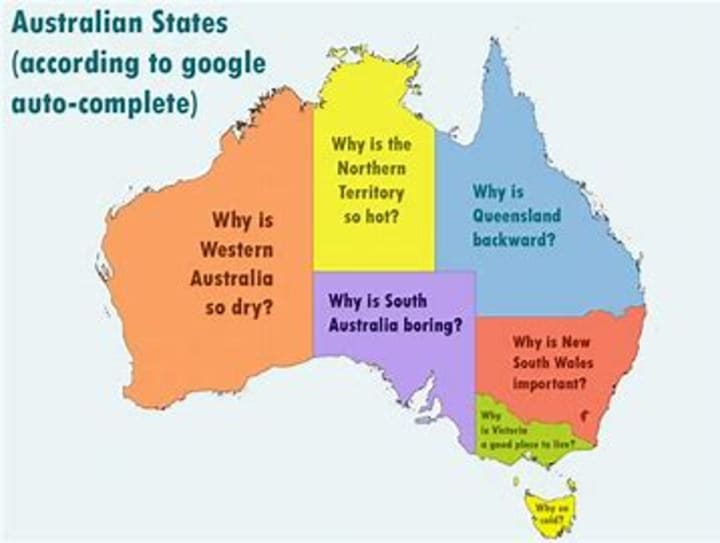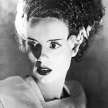Terra Nullius by Clare G. Coleman
Book Review

Australian affiliate links are at the bottom of this article
Hello Book People! Today I'm showcasing Claire G. Coleman's first sci-fi novel, Terra Nullius. But first, let me read to you the blurb and author bio:
Jacky was running. There was no thought in his head, only an intense drive to run. There was no sense he was getting anywhere, no plan, no destination, no future. All he had was a sense of what was behind, what he was running from. Jacky was running.
The Natives of the Colony are restless. The Settlers are eager to have a nation of peace, and to bring the savages into line. Families are torn apart, re-education is enforced. This rich land will provide for all.
This is not the Australia as we know it. This is not the Australia of our history. This Terra Nullius is something new, but all too familiar.
This is an incredible debut from a striking new Australian Aboriginal voice.
And the author bio reads:
Claire G. Coleman is the author from Western Australia, who identifies with the South Coast Noongar people. Claire wrote her debut novel, the black&write! fellowship-winning Terra Nullius, while travelling around Australia in a caravan.
I picked up Terra Nullius because
... it was reviewed professionally as a uniquely Australian take on the alien invasion trope common in speculative fiction. I then found out it was runner-up in a few Australian literary awards.
But, as I got into it I found that I didn’t like it as much as I’d hoped I would. I started skimming over what I felt to be similar descriptive passages of text. And felt in a kind of limbo waiting for the "real" story to begin. But Terra Nullius still contains some beautiful gems. And I'll be sure to mention them. But before I do...
International BookTubers need to know about
...how the HG Wells sci-fi classic War of the Worlds was written as a reaction to the British colonisation of Van Dieman’s Land. Known today as Tasmania or Lutruwita, which is my home state. But is not the same Australian state depicted in Terra Nullius, which would be Western Australia.

In a nutshell, HG Wells wanted to say that it doesn’t matter how powerful you might think you are as a nation. There will always be someone "out there" more powerful. And the "civilized" will struggle to hold onto their humanity or lose their humanity outright, because of the invasion.

There is a direct mention of War of the Worlds as an "ancient text" in Terra Nullius and Claire G. Coleman has given an interview where she talks about "flipping" War of the Worlds tropes.
In Terra Nullius the reader gets to share in the alien point of view and Claire G. Coleman has written all humans to retain their humanity, for the most part of the book. But, I have to admit, I don’t know what I am supposed to think about...
...the element of disease between these two novels.
In Australia’s historic colonial era Indigenous peoples died from relatively simple European diseases. And it's very Australian to refer to any contagious disease as a "common cold" as a generic description.
Because I’ve always known my home state is the inspiration for War of the Worlds I’ve always assumed the "common cold" was also the inspiration for bringing down the tripods. That HG Wells had "flipped" Australia’s historic past to win the day for Earth against the Martians.
It didn't occur to me that I haven’t actually heard an academic draw the same conclusion as I have. I've realised I'm probably alone in thinking about this as a connection. Because I read, in an interview with Claire G. Coleman, that she took the War of the Worlds susceptibility to diseases and "flipped" it to reflect Australia’s historic narrative. And that she was the first to do so.
So, I don't know what to think about this connection anymore. If you have read both novels, what do you think about it?
We have always been here. We are still here. We are not going anywhere.
- Anonymous
SPOILER WARNING

So, there are five main characters,
... but there are only four who drive the story. And only one I'd consider a true protagonist.
The world has been invaded by aliens who refer to themselves as "Settlers" and to us humans as "Natives". The main protagonist is Jacky. A Native who has absconded from the homestead which owned him as a slave.
He was not lost, he just didn't know where he was going; he was not lost, his destination was.
The other Native in the story, Esperance, has been born free in a kind of refugee camp, or as free as anyone can be in an alien invasion dystopia. Resources like shelter, blankets, food and water are precious and they live in constant fear of discovery because there have been community massacres.
The camp was not her home; she had no home, no sense of belonging to a place, she knew no life but that of a refugee. It was, however, as close to a home as she had ever known, would ever have. She did not want to leave it.
The two Settler characters important for the plot are the aliens' Sergeant Rohan and Johnny Star, both beginning their stories as Troopers.
The mission for Sgt. Rohan is to recapture Jacky and return him, though it’s quite clear that if he ‘accidentally’ kills Jacky no one will grieve, nor will Sgt. Rohan be punished for that outcome.
...he was consumed with the desire to go home. Not the remote town where he worked, from where he had been sent on this ludicrous search; that would never be his home. Nor did he want to return to the capital city of this colony, where he had been born, where he always felt like an uprooted tree planted on alien soil.
On the opposite side of that coin is Johnny Star. His last mission as a Trooper was the massacre of a Native community. Sickened by the horror of it he goes AWOL to roam the outback with a band of Native men. Later in the story, he meets up with and helps Jacky locate his hometown, Jerramungup. And the two men have their last stand together in Esperance's camp.
And, I like this passage on Johnny Star:
… that when you plant bones, nothing grows from them. Nothing but pain. As much as his homesickness racked at his soul there was no use thinking about it. This camp in the bush was his home – a series of camps in the bush would be his home until they planted his bones.
The fifth main character is Sister Bagra who is the headmistress of a missionary school where Jacky had grown up. There isn't that much to describe this particular character, other than she is perpetually angry.
Sr Bagra is one feature that I didn’t like about the novel. Because she doesn't have much to do with anything related to the plot or other characters. I can understand why the nun was introduced, obviously to highlight the historic abuses of children in missionary schools, which was a part of Jacky’s past. And her story involves many horrific actions against Native children. But her story is otherwise independent of everyone else.
Sr Bagra only has one scene with one other main character, Sgt. Rohan. And that scene could’ve been cut out, or swapped out Sr Bagra for any other nun and not changed anything in the novel at all.
...Bear in mind, they do not fear us, they do not hate us, we simply do not conform to their narrow definition of 'people'.
There is a lot of internal monologue with every character.
Even with minor characters. At first, I didn’t understand Claire G. Coleman’s decision to write in the third person, where it would have been better to have all that internal monologue in a first-person narrative. But, I found there was another reason for it when I realised that Claire G. Coleman is playing around with time.
Layering linear time over non-linear time...
...is the biggest of the science-fiction tropes Claire G. Coleman gets creative with.
I really liked what she has tried to do but at times found it a bit frustrating at certain plot points. In the beginning, it reads like Australia’s historic past. In the middle, it reads like the present, and in the end, it reads like a speculative future. But Australia’s past and future are also simultaneously given to the reader as the present moment.
At the head of each chapter is a passage of text, a fictional quote, as commentary on the past events which make up the story in the novel. But, because these short fictions are out of context it reads they are from the past while the events in the story read like they're in the future.
The story as we follow Jacky, Esperance, Johnny Star and Sgt. Rohan, are all set in our future, but is centuries in the novel's own past. And it's all written in present tenses. And third-person narratives.
It caused some confusion for me at the very beginning, but I'm a science fiction fan, so when I learned how it was all laid out for the reader, I loved it. But, it also means there is this frustrating reveal for each character as the plot unfolds.
Like for Sgt. Rohan, when he’s put on the trail of Jacky he’s out in the desert for weeks just like an olden-days Trooper would be. As the plot unfolds you learn interesting details like his mount is also an alien creature. But by the end of the novel, there’s a satellite. And that helps him locate Jacky who, with Johnny Star, has reached Esperance’s camp. And I felt that all that time in the desert was for nothing.
So, I didn’t like how the novel ended. I found it inevitable. Though I thought, the aftermath was nicely romanticised:
Months later the bones were white and wildflowers and tangling vines were overrunning the remains, blurring the edges between the dead and the living. Among them, so scattered with the bones of Jacky Jerramungup it would have been impossible to separate them completely, lay the bones of Johnny Star.

I’d like to wrap up my review
...with a traffic light recommendation for people. Red Light for those who I wouldn’t recommend this novel to, Yellow Light for those who might want to read this novel, and a Green Light for anyone who would definitely enjoy Terra Nullius.
RED LIGHT:
So, the people I definitely wouldn't recommend this to would be the snowflakes. If anybody has referred to you, even as a passing joke, that you might be a snowflake, then I don’t recommend Terra Nullius. Claire G. Coleman is an activist and has put her politics into her novel. Using the science fiction genre as a framework for what she wants to say. In of itself, that's nothing new to sci-fi. We can revisit War of the Worlds as one example of a political agenda in literature. However, if you feel politics shouldn't be at the forefront of fiction then it's okay to give Terra Nullius a miss.
YELLOW LIGHT:
I would maybe recommend Terra Nullius to east-coast Australians who like science-fiction looking for alternative invasion narratives.
I'm not sure how this novel appeals internationally. I suppose I could assume that if Australia's colonial history isn't well known to you, that you might consider this sci-fi novel to be highly unique.
GREEN LIGHT:
I would, without hesitation, recommend this novel to readers who would like to take the time to read Claire G. Coleman’s interviews on all her works, including anything on her political views. I liked the novel a bit better when I understood what she was trying to do as an author. Personally, I prefer to separate work from the author but if you love the way an author’s life adds deeper meaning to their literary work, then Terra Nullius would be for you.
Anyway, I will love you and leave you. I've put links to Clarie G. Coleman's Twitter and her website (below). And please comment below if you disagree with anything I’ve said because I would genuinely like to hear any different interpretations of the novel.
Thank you and Goodbye!
Vocal readers can comment on my YouTube page. Please ❤, tip for appreciation, share this article and/or follow me on Vocal, or Twitter.
SHOW NOTES
(All * are Australian affiliated links)
Buy Terra Nullius, ebook*: https://amzn.to/3pso5Tw or paperback*: https://amzn.to/3aZXzbH
Follow Claire G. Coleman on Twitter, or visit her Blog.






Comments
There are no comments for this story
Be the first to respond and start the conversation.